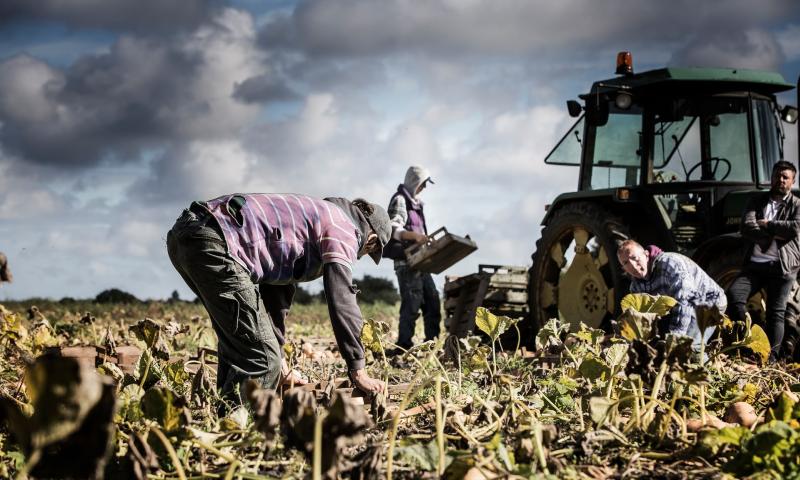Report shines light on modern-day slavery in UK agricultural industry

The agricultural industry is among 17 sectors that are deemed high-risk for exploitation and abuse of workers, according to a new report.
The Gangmasters and Labour Abuse Authority (GLAA) has released its new report today (8 May) highlighting the extent of labour exploitation and slavery in modern-day Britain.
In the agricultural industry, the main nationalities of abused workers include Romanians and Bulgarians, with smaller numbers from Poland and Lithuania. 21 nationalities are identified in total.
The report states that the agricultural sector relies heavily on licensed gangmasters to supply manual labour, and some licence holders have been subject to scrutiny concerning possible serious labour market exploitation.
Furthermore, unlicensed gangmasters provide an option where there are difficulties in fulfilling contracts.
Labour users are being approached by companies and individuals, including those that are not licensed, who are offering to supply labour for £50 to £100 per worker, or a charge rate of 20%.
'Horrific conditions'
The report highlights the reality of individuals charging seasonal workers up to £50 for work during the crop picking seasons.
There is believed to be an element of competition and rivalry between individuals, businesses and crime groups involved in this business.
Seasonal workers in the agriculture sector are regularly accommodated at caravan parks, with many sites housing a large number of workers.
However, the conditions of some sites have been described as “horrific”, with farm workers expected to live in overcrowded and unsanitary conditions.
Working conditions are often reported to be poor, and not as described to the workers. In a small number of cases, employees have refused to work or have left the employment due to the conditions.
Complaints have been made with regards to some supervisors being abusive and a small number of workers have reported a physical assault.
15 hour days
Abused workers in agriculture can be expected to work 40-60 hour weeks. However, some report 15 hour days, sometimes working seven days consecutively, completing double shifts with insufficient breaks in between.
There are workers reportedly living and sleeping in vans which transport them across the UK for days at a time, with the driver both working and driving to the next venue.
The report highlights that there have also been serious health and safety concerns at some agricultural sites, with serious incidents reported.
In regards to pay, in many cases, it is reported to breach National Minimum Wage, particularly when deductions are made for accommodation and transport.
Minister for Crime, Safeguarding and Vulnerability Victoria Atkins commented on the report. She said: “The barbaric nature of modern slavery means it destroys the lives of its victims, which is why we introduced the world-leading Modern Slavery Act 2015 and increased the Gangmasters and Labour Abuse Authority funding by £2.6m a year to help tackle modern slavery and wider labour exploitation.
“This report is part of the GLAA's crucial work to understand the scale of exploitation of vulnerable workers so that law enforcement can identify and protect victims, and convict their perpetrators. I am pleased that the GLAA has made over 100 arrests since their new powers came into force in May last year."








